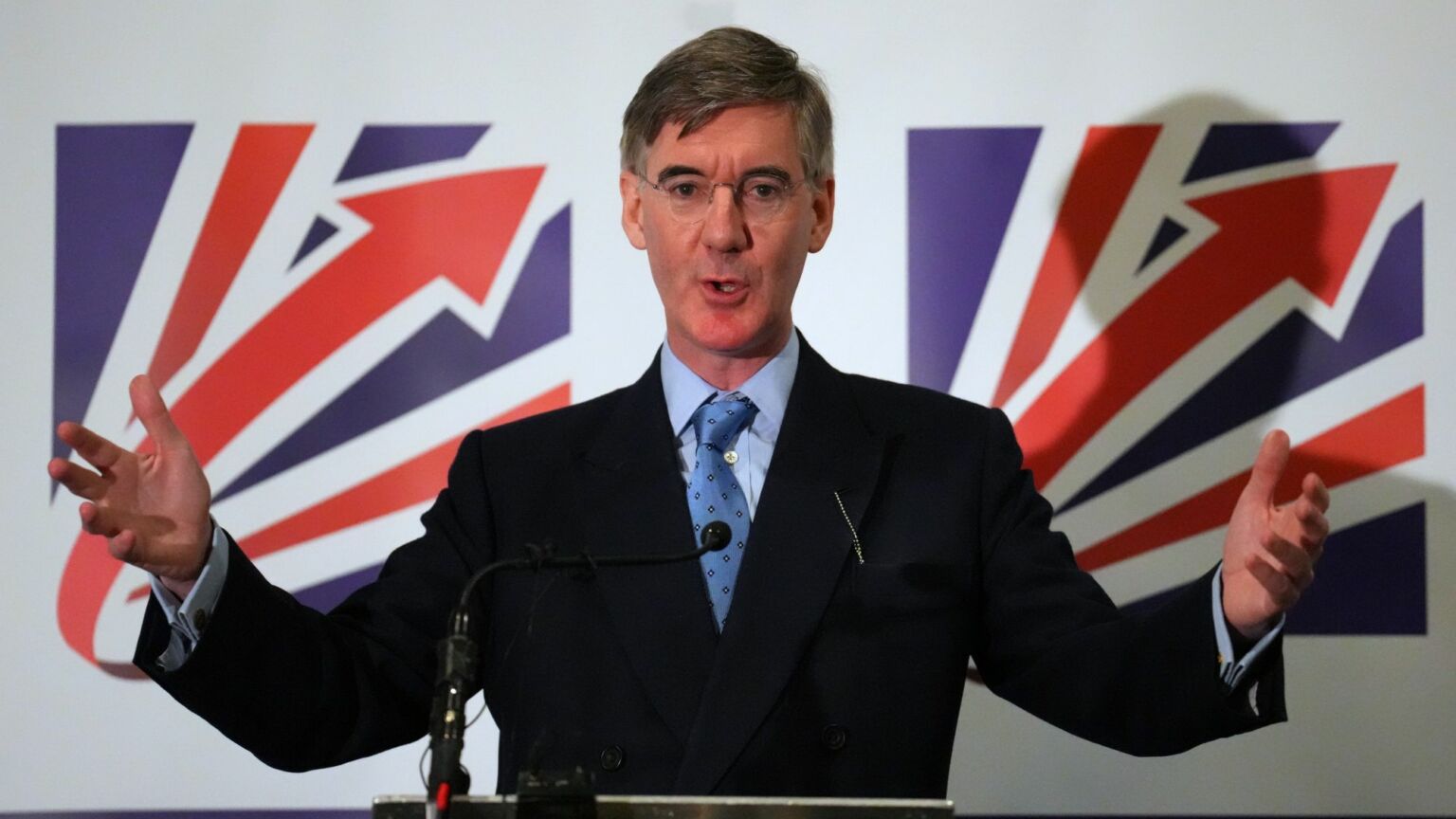Hope Not Hate sees ‘extremism’ everywhere
Its new report tries to brand Tory MPs and gender-critical feminists as threats to democracy.

Want to read spiked ad-free? Become a spiked supporter.
This week, Michael Gove, the UK government’s communities secretary, published a new definition of ‘extremism’. He defined it as ‘the promotion or advancement of an ideology based on violence, hatred or intolerance’, which has the aim of undermining ‘the UK’s system of liberal parliamentary democracy and democratic rights’. The definition is not statutory and won’t criminalise groups deemed ‘extremist’. But it will prevent the government from engaging with or funding them. And ultimately, it will stigmatise anyone who is classified as an extremist.
The problem with this definition is that it is inescapably subjective and grants the government far too much power. After all, who decides what is and is not an ideology based on ‘violence, hatred or intolerance’? So far, Gove has explicitly aimed his new definition at two far-right groups and three Islamic organisations. But it’s all too conceivable that a future government, in hock to identity politics, could define, say, gender-critical feminists or Christian conservatives as hateful ideologues intent on depriving people of their rights.
Indeed, an insight into how this new ‘extremism’ definition could be abused by the left has just been provided by campaign group Hope Not Hate. Its new report, State of Hate 2024: Pessimism, Decline and a Rising Radical Right, was published on the same day as Gove’s extremism definition. And it effectively classifies traditional values and conservative beliefs as part of, or as fuelling, ideologies of ‘hate’.
Hope Not Hate seeks to push all sorts of right-wing people and groups beyond the pale. It names senior Tories Jacob Rees-Mogg, John Redwood and Iain Duncan Smith in its litany of perceived hate-mongers. It also takes aim at MPs Danny Kruger and Miriam Cates, who chair the New Conservatives faction in the Tory Party. In fact, Hope Not Hate appears to condemn as hateful any politician concerned about the influence of gender ideology in schools and the contents of contemporary sex education.
It gets sillier still. The report talks of ‘a growing radical-right infrastructure’, which is facilitating the ‘radicalisation’ of the governing Conservative Party. Hope Not Hate fingers the Telegraph, TalkTV and some lesser-known think-tanks as supposedly being sources of hate and division. In a paragraph that echoes Gove’s definition of extremism, Hope Not Hate states that ‘this complex and varied scene’ is united by its ‘opposition to “woke” politics, particularly transgender rights and multiculturalism’, and is committed to ‘a certain conception of “free speech”’. Hope Not Hate concludes that ‘this radical-right insurgency is a dangerous challenge to Britain’s liberal democracy and is undermining the rights of minority and vulnerable communities’.
As this report makes clear, Gove’s ‘extremism’ definition is a gift to petty authoritarians like Hope Not Hate. There are far too many on what passes for the left today who would enjoy nothing more than cracking down on those they disagree with – all on the spurious grounds that they pose, as Hope Not Hate puts it, ‘a dangerous challenge to Britain’s liberal democracy’.
The likes of Hope Not Hate aren’t just focussed on demonising right-wing or conservative views, however. They’re also happy to brand gender-critical feminists as hateful for supposedly depriving others of their so-called right to gender self-identification. That these feminists are, in fact, protecting women’s hard-earned rights and defending the basics of biological reality does not seem to occur to them. As far as Hope Not Hate is concerned, someone like women’s rights campaigner Kellie-Jay Keen – to whom Hope Not Hate dedicates an entire profile in The State of Hate 2024 – is just a few removes from a full-blown fascist.
This is the whole problem with the government’s latest attempt to define and tackle so-called extremism. It allows those in power to stigmatise and delegitimise the views of those they oppose. And if Hope Not Hate’s latest report-cum-screed is any indication, this could include large swathes of the Conservative Party itself.
Whether he realises it or not, Gove has just scored a spectacular own goal.
Rakib Ehsan is the author of Beyond Grievance: What the Left Gets Wrong about Ethnic Minorities, which is available to order on Amazon.

Matt Ridley and Brendan O’Neill – live and in conversation
Thursday 21 March – 7pm to 8pm GMT
This is a free event, exclusively for spiked supporters.
Picture by: Getty.
Who funds spiked? You do
We are funded by you. And in this era of cancel culture and advertiser boycotts, we rely on your donations more than ever. Seventy per cent of our revenue comes from our readers’ donations – the vast majority giving just £5 per month. If you make a regular donation – of £5 a month or £50 a year – you can become a and enjoy:
–Ad-free reading
–Exclusive events
–Access to our comments section
It’s the best way to keep spiked going – and growing. Thank you!








Comments
Want to join the conversation?
Only spiked supporters and patrons, who donate regularly to us, can comment on our articles.